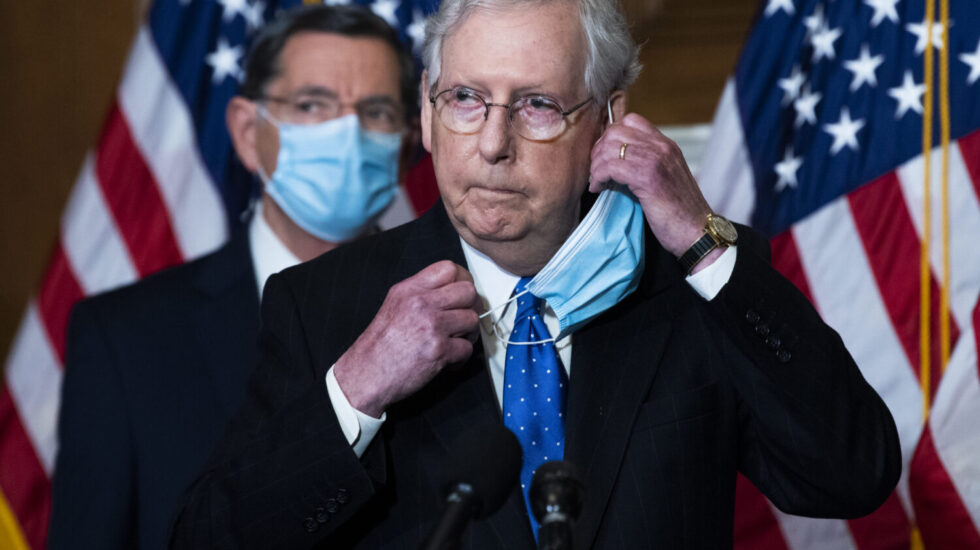The Senate delayed an economic catastrophe on Thursday when it reached a deal to extend the debt ceiling through early December.
Treasury Secretary Janet Yellen had previously warned that the U.S. would default on its debt by mid October if lawmakers didn’t reach an agreement on raising the country’s borrowing limit. That would have likely triggered a stock market crash and widespread unemployment.
Raising the debt limit was once a routine, bipartisan affair. But in an increasingly rancorous political climate, Republicans threatened to block an increase. Senate Minority Leader Mitch McConnell (R-KY) seemed hellbent on dragging out the process as a way to highlight what he considers reckless spending supported by Democrats. But the vast majority of the recent national debt accrued was the product of policies passed during the Trump administration.
Earlier this week, President Joe Biden called the GOP obstinance “hypocritical, dangerous and disgraceful.”
“Not only are Republicans refusing to do their job, but they’re threatening to use their power to prevent us from doing our job — saving the economy from a catastrophic event,” Biden said.
A breakthrough came on Wednesday, when McConnell proposed a stopgap solution. Reuters reports:
A Senate aide, who asked not to be identified, said the deal calls for a debt limit increase of $480 billion from the current $28.4 trillion. If approved by the Senate and House of Representatives, the U.S. debt limit would then be set at $28.9 trillion.
The New York Times called McConnell’s proposal a “tactical retreat.” Sen. Elizabeth Warren (D-MA) simply said, “McConnell caved.”
“The bottom line is, Republicans know they’re going to get blamed for this,” Sen. Chris Murphy (D-CT) added.
The bill that raises the debt limit will likely be voted on by the Senate on Thursday afternoon.
POLITICO reports that, “the short-term fix merely punts a standoff that has already dragged on for months, and could serve to make the fight even more of a mess.”



